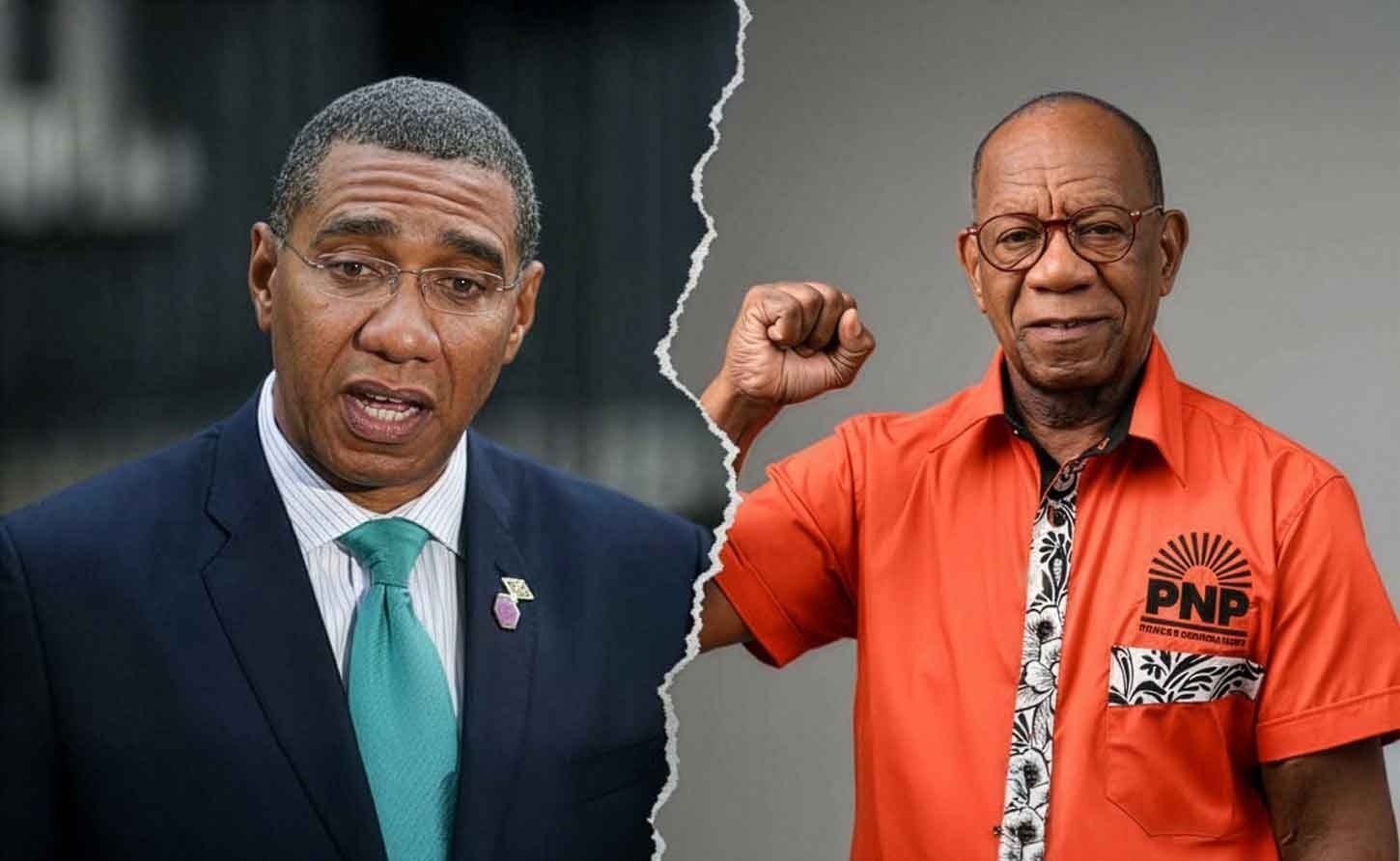JAMAICA | Supreme Court To Hold Judicial Review in Buchanan-Holness Electoral Fight On November 18

KINGSTON, Jamaica, October 21, 2025 - The Supreme Court has set November 18, 2025, as the date to hear the application for leave for Judicial Review of the decision of the Constituted Authority in the application to void the Sept 3 election brought by PNP candidate for West Central St. Andrew, Paul Buchanan.
Case Management was held this morning, where it was noted as a serious and unprecedented case involving the Constituted Authority.
The Judge ordered that documents be served on the JLP candidate, Andrew Holness and the Attorney General who is representing the Constituted Authority.
The People's National Party candidate, who lost his bid to unseat Prime Minister Dr. Andrew Holness in the St. Andrew West Central constituency on September 3, filed for judicial review of the Constituted Authority's decision, arguing that the body designed to screen election complaints has overstepped its mandate by acting as judge and jury rather than gatekeeper.
At the heart of Buchanan's legal challenge lies a fundamental question about Jamaica's electoral oversight: When evidence of alleged voting irregularities is presented, who decides if it's credible enough to investigate—a screening body or the courts established specifically to adjudicate such matters?
The election results weren't particularly close. Holness secured 7,054 votes to Buchanan's 4,953—a margin of more than 2,000 votes in a constituency where Holness as the Prime Minister has held sway for years. But Buchanan, a land economist and experienced electoral campaigner familiar with the intricacies of Jamaica's voting process, insists the numbers tell only part of the story.
What happened on election day in the volatile communities of Olympic Gardens and Molynes Gardens, he argues, wasn't democracy in action but democracy under duress.
Within days of the September 3 vote, Buchanan's team began gathering affidavits—sworn statements from poll watchers, party workers, and election officials detailing a cascade of irregularities that, they claim, fundamentally compromised the electoral process in key divisions where Buchanan held support.
On September 16, his attorney Hugh Wildman delivered the package to the Constituted Authority, the body established under Section 44A of the Representation of the People Act to receive and evaluate complaints about electoral conduct. The Authority had 14 days to review the evidence and decide whether to refer the matter to the Election Court.
On September 30, the answer came back: No.
The evidence Buchanan presented painted a disturbing picture of election day in St. Andrew West Central. Five witnesses provided sworn testimony detailing alleged irregularities that touched on nearly every aspect of electoral integrity—from how votes were cast to how they were counted to how ballot boxes were transported.
The Legal Crossroads
The Constituted Authority reviewed these affidavits and concluded they didn't meet the evidentiary standard. In its September 30 ruling, the Authority stated: "Having analyzed the affidavits, the Constituted Authority finds that the alleged irregularities do not satisfy the standard contemplated by the wording of section 37(e) of the Election Petitions Act or as enunciated by the Election Court in Blake v Holness."
The Authority's conclusion: "In the circumstances, the Constituted Authority refuses Mr. Buchanan's request for it to file an application to the Election Court to void the election in the constituency of Saint Andrew, West Central."
But that's precisely where Buchanan and his legal team believe the Authority went wrong.
"We are saying that the Constituted Authority usurped the function of the election court," Wildman told Radio Jamaica News Wednesday afternoon. "It is not their job to do that. Their job is to determine whether or not there is credible evidence to go to the election court. And once there is credible evidence to go to the election court, they have a duty to send it to the election court. They don't have any discretion to prevent it from going."
The distinction matters. Under Jamaica's electoral law framework, the Constituted Authority serves as a screening mechanism—receiving complaints and determining whether they contain sufficient credible evidence to warrant full investigation by the Election Court, which is established under Section 35(1) of the Election Petitions Act specifically to hear such cases and determine whether elections should be voided.
Buchanan's judicial review application argues that the Authority exceeded its mandate by not just screening the evidence but effectively adjudicating its sufficiency—asking themselves whether the evidence met the legal standard for voiding an election rather than whether it was credible enough to warrant investigation.
"The Respondent failed to appreciate that they were not acting as the election Court and that their duty is, that once there is evidence of election malpractice as established by the Applicant, they have a duty to refer the matter to the election Court," Buchanan's affidavit states.
The application further argues that the Authority "asked themselves the wrong question and concluded by making the wrong determination as to the evidence that was before them"—a textbook definition of the kind of procedural error that makes administrative decisions vulnerable to judicial review.
The Remedy Sought
Buchanan isn't asking the Supreme Court to overturn the election results directly. Instead, he's seeking several specific orders that would force the Constituted Authority to do what he believes they should have done in the first place: refer his complaint to the Election Court for proper adjudication.
His application seeks a declaration that the Authority's refusal was "unlawful, null and void and of no effect." He wants an order of certiorari quashing the Authority's decision. Most significantly, he seeks an order of mandamus—a court order compelling a public body to perform a duty it is legally required to perform—forcing the Authority to refer his application to the Election Court.
"We are asking the Supreme Court to intervene and to quash their decision and to compel them by way of a mandamus to send it to the election court, to consider whether the election in West Central [St. Andrew] should be voided," Wildman explained.
-30-
